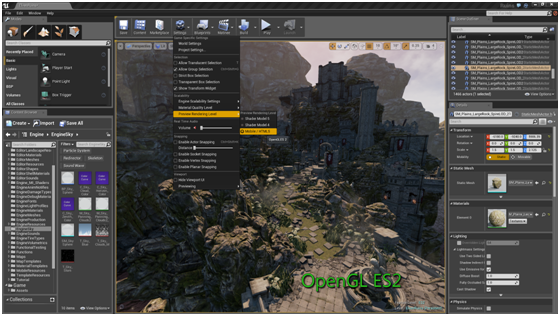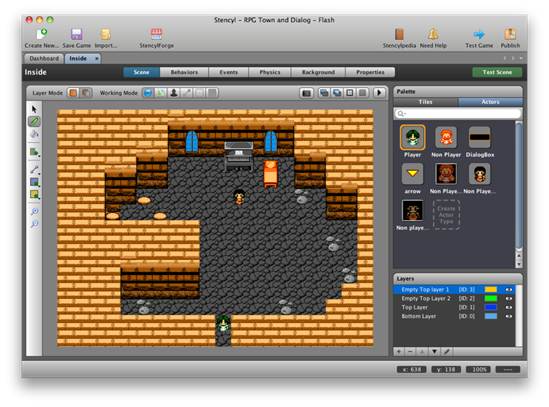I was 11 years old when I decided I want to make games. And no, it wasn't because there was a wonderful game that inspired me to make games; the reason was something more childish. You see, Sony Playstation 2 was released just a year earlier and a lot of games were being made for the new console. The 11-year-old me, who only had a Playstation 1, got annoyed because games for PS1 weren't developed anymore. So, out of nowhere, I decided to just make those games myself. Two years after that, I finally built my first game, and after a couple more years, I actually started developing games for a living.
It was childish thinking, but it actually gave me a goal very early in life and helped me to choose a path for me to follow. And while I think my life turned out quite okay, there are still things that I wish the younger me would have known back then. Things that would have helped me a lot back when I was building my first game. And even though I can't go back and tell those things to myself, I can tell them to you. And hopefully, it will help you in your quest to build your first game.

Why do you want to build a game?
Let's start with the most important thing you need to understand when you want to build a game: yourself. Why do you want to build a game? What goal do you hope to achieve by developing a game? There are multiple possible reasons for someone to start creating a game. You could develop a game because you want to learn about a particular programming language or library, or because you want to make a living from selling your own game, or maybe because you have free time and think that building a game is a cool way to pass it.
Whatever it is, it's important for you to know your reasons, because it will help you decide what is actually needed for the game you're building. For example, if you develop a game to learn about programming, then your game doesn't need to use fancy graphics. On the other hand, if you develop a game to commercialize it, then having a visually appealing game is highly important.
One more thing to clarify before we go further. There are two phases that people have before they build their first game. The first one is when someone has the desire to build a game, but has absolutely no idea about how to achieve it, and the other one is when someone has both the desire and knowledge needed to build a game, but hasn't started doing it. Both of them have their own set of problems, so I'll try to address both phases here, starting with the first one.
Learn and master the tools
Naturally, one of the first questions that comes to mind when wanting to create games is how to actually start the creation process. Fortunately, the answer to this question is the same for any kind of creative projects you'll want to attempt: learn and master the tools. For game development, this means game creation tools, and they come in all shapes and sizes. There are those that don't need any kind of programming, like Twine and RPGMaker, those that require a tiny bit of programming like Stencyl and GameMaker, and the professional ones that need a lot of coding like Unity and Unreal Engine. Though, if you want to build games to learn about programming, there's no better way than to just use a programming language with some game-making library,like MonoGame.
With so many tools ready for you to use, will your choice of tools matter? If you're building your first game, then no, the tool that you use will not matter that much. Whilst it's true that you'd probably want to use a tool with better capabilities in the future, at this stage, what's important is learning the actual game development process. And this process is actually the same no matter what tool you use.
Unlock access to the largest independent learning library in Tech for FREE!
Get unlimited access to 7500+ expert-authored eBooks and video courses covering every tech area you can think of.
Renews at $19.99/month. Cancel anytime
KISS: Keep It Simple, Sugar
So, now that you know how to build a game, what else do you need to be aware of before you start building it? Well, here's the one thing that most people only realize after they actually start building their game: Game development is hard. For every feature that you want to add into a game, there will be dozens of cases that you have to think about to make sure the feature works fine.

And that's why one of the most effective mantras when you're starting game development is KISS: Keep It Simple, Sugar (a change may have been made to the original, slightly more insulting acronym). Are you sure you need to add enemies to your game? Does your game actually need a health bar, or would a health counter be enough? If developing a game is hard, then finishing it is even harder. Keeping the game simple increases your chance of finishing it, and you can always build a more complex game in the future. After all, a released game is better than a perfect, but unreleased game.
That said, it's possible that you're building a game that you've been dreaming of since forever, and you'd never settle for less. If you're hell bent on completing this dream game of yours, who am I to tell you to not pursue it? After all, there are successful games out there that were actually the developer's first game project. If that's how it is, just remember that motivation loss is your biggest enemy and you need to actively combat it. Show your work to other people, or take a break when you've been working on it too much. Just make sure you don't lose your drive to complete your project. It’ll be worth it in the end!
I hope this advice is helpful for you. Good luck with building your games!
About the Author
RakaMahesa is a game developer at Chocoarts (http://chocoarts.com/), who is interested in digital technology in general. Outside of work hours, he likes to work on his own projects, with Corridoom VR being his latest released game. Raka also regularly tweets as @legacy99
 United States
United States
 Great Britain
Great Britain
 India
India
 Germany
Germany
 France
France
 Canada
Canada
 Russia
Russia
 Spain
Spain
 Brazil
Brazil
 Australia
Australia
 Singapore
Singapore
 Canary Islands
Canary Islands
 Hungary
Hungary
 Ukraine
Ukraine
 Luxembourg
Luxembourg
 Estonia
Estonia
 Lithuania
Lithuania
 South Korea
South Korea
 Turkey
Turkey
 Switzerland
Switzerland
 Colombia
Colombia
 Taiwan
Taiwan
 Chile
Chile
 Norway
Norway
 Ecuador
Ecuador
 Indonesia
Indonesia
 New Zealand
New Zealand
 Cyprus
Cyprus
 Denmark
Denmark
 Finland
Finland
 Poland
Poland
 Malta
Malta
 Czechia
Czechia
 Austria
Austria
 Sweden
Sweden
 Italy
Italy
 Egypt
Egypt
 Belgium
Belgium
 Portugal
Portugal
 Slovenia
Slovenia
 Ireland
Ireland
 Romania
Romania
 Greece
Greece
 Argentina
Argentina
 Netherlands
Netherlands
 Bulgaria
Bulgaria
 Latvia
Latvia
 South Africa
South Africa
 Malaysia
Malaysia
 Japan
Japan
 Slovakia
Slovakia
 Philippines
Philippines
 Mexico
Mexico
 Thailand
Thailand
















